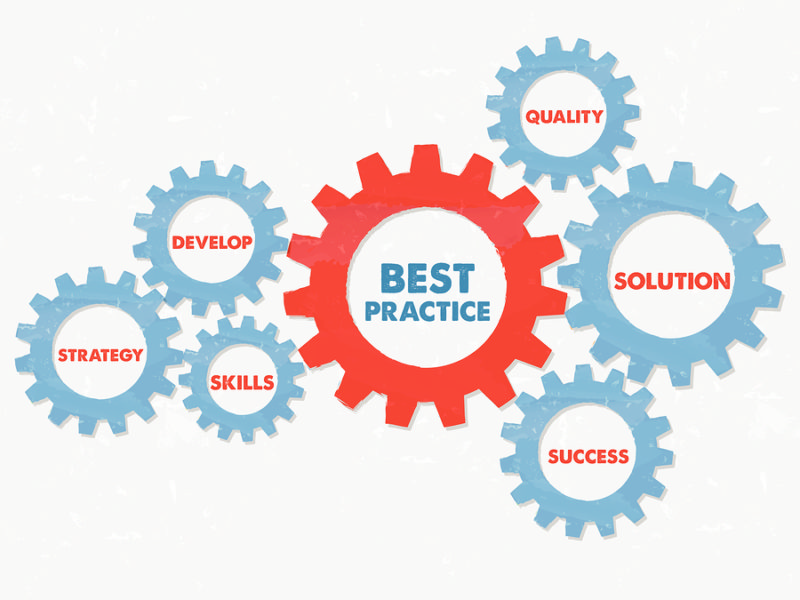If there is one factor that is common among successful sales organizations, it is performance consistency. Good sales team leaders don’t rely on their salespeople’s individual personalities, experience, quirks and work habits to steadily generate high numbers. Instead, they ensure performance consistency and high sales productivity by identifying Best Practices, training their staffs in these practices, and then monitoring their salespeople’s performance to ensure these practices remain entrenched in the company culture.
What are “Best Practices”?
We regularly hear the term “Best Practices,” but just what does it mean?
BusinessDictionary.com defines “Best Practices” as “A method or technique that has consistently shown results superior to those achieved with other means, and that is used as a benchmark.”
There are thee important elements to this definition:
- Results are superior to those achieved with other means. We know they are “best” because they have been tested and measured. Just because a practice appears to yield “good” results does not necessarily make it “best.”
- Results are consistent. To be a Best Practice, it must regularly produce superior results over time. A practice with erratic or one-time-only outcomes can’t be considered a “Best Practice.”
- It’s used as a benchmark. In other words, the practice becomes “standard operating procedure.” This is important if a department, not just an individual, is to achieve high sales productivity.
How Do We Identify a “Best Practice”?
Identifying sales methods and techniques that produce consistently high results takes effort and a coldly scientific outlook. You have to recognize the variables and external factors that can affect individual sales performance.
There are four principal ways we can identify sales Best Practices:
- Look to your top performers. Every sales organization has members who consistently outperform their peers. To identify Best Practices for your organization, zero in on these “A Players” and determine how they achieve their high levels of success. Do they practice particular behaviors or use specific language or tools others in your team can emulate? If so, capture them so others can benefit from their experience.
- Research and share information with others in your industry. Blogs, whitepapers, reports, seminars and trade shows all offer opportunities to learn from others and draft off their success. Pay particular attention to what others in your industry are doing, especially your chief competitors.
- Survey your customers and prospects. What motivates your customers? What turns them off? What compels them to choose one product or service over another? Not sure? Ask them!
- Test. Test. Test. Again, to be a Best Practice, a method must be measurably superior to others. The only way to determine such efficacy is to test, enhance, test and repeat.
And don’t forget, Best Practices change over time. Technology is rapidly improving the way we do business, so what worked yesterday may not work as well today, and may be even less effective tomorrow. Don’t be afraid to adapt and evolve.
How Does a “Best Practice” Become a Benchmark?
Once you have identified your company’s best practices, you need to codify them in some form. Usually, this is done by creating a sales guidebook. In this book, you walk the salesperson through your company’s unique sale process and call out the specific Best Practices shown to yield the best results at each stage.
You then need to train your staff in these practices, and regularly monitor their behavior to ensure Best Practices are consistently followed. Without oversight, it’s easy for people to fall back into bad habits.
Best Practices can be applied to all aspects of sales, from how salespeople pitch prospects, to the design and content of sales collateral, to the frequency and messaging of emails. Regardless of the form, identifying, codifying and propagating Best Practices is key to creating a highly productive – and profitable — sales organization.
Tools & Technology to Improve Sales Productivity
The Peterson Group (TPG) specializes in helping companies of all sizes improve their sales productivity. Our Best Practice-based Tools that Sell® and Technologies that Deliver® help companies improve individual sales performance and generate more revenue over time.
For more information, visit www.go4tpg.com or email increasesales@go4tpg.com.



Recent Comments